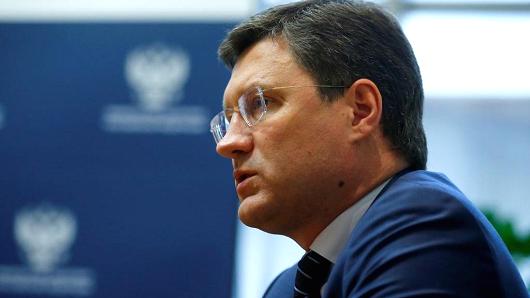Oil prices marched higher on Tuesday following reports indicating that Russia and Saudi Arabia are considering extending the oil production cut deal agreed between both OPEC and non-OPEC members once it expires in March 2018.
Russia’s Energy Minister Alexander Novak was a key architect of the output cut deal that was extended by nine months last May. Novak was quoted by the domestic news agency Tass as saying on Tuesday that representatives from the two countries had talked about an extension but that no specific decisions had yet been reached.
The comments follow remarks attributed to Iranian Oil Minister Bijan Zanganeh on Monday night that participants’ compliance with the terms of the deal had been improving.
The minister is reported to have added that unofficial talks between deal participants are currently underway.
The deal has so far led to a pullback of around 1.2 million barrels per day (bpd) of production generated by OPEC members and around an additional half of that figure again by non-OPEC participants. However, compliance has been weakening according to monitors at the International Energy Agency, who claim that OPEC members’ levels of compliance slipped to their poorest in six months in June as several countries elected to produce beyond the agreed limits.
Brent oil was trading 0.29 percent higher at $52.50 per barrel at 9:50 a.m. London time on Tuesday while WTI was over a percent higher at $47.79. Since the original agreement was announced last November, Brent has gained around 6 percent while WTI has moved 13 percent higher.
In addition to the effects of the agreement, increasing output from U.S. shale producers and a measured recovery in global demand have also been key influences pulling and pushing on the oil market over that period.
In the past week, prices have been supported by the supply hit caused by Hurricane Harvey in the U.S. as well as mounting geopolitical tensions – a factor which should keep bolstering the market should the situation with North Korea continue to degenerate, according to Goldman Sachs’s Michele Della Vigna.
“Typically any sign of political disruption, political tension, should actually have a positive impact on Brent – because currently we live in a period of still healthy spare capacity, that political premium is likely to be more reduced,” Della Vigna, co-head of European equity research at the U.S. investment bank, told CNBC on Monday.
“I think any sign of global instability overall should be supportive for the oil price.”
AGENCIES





